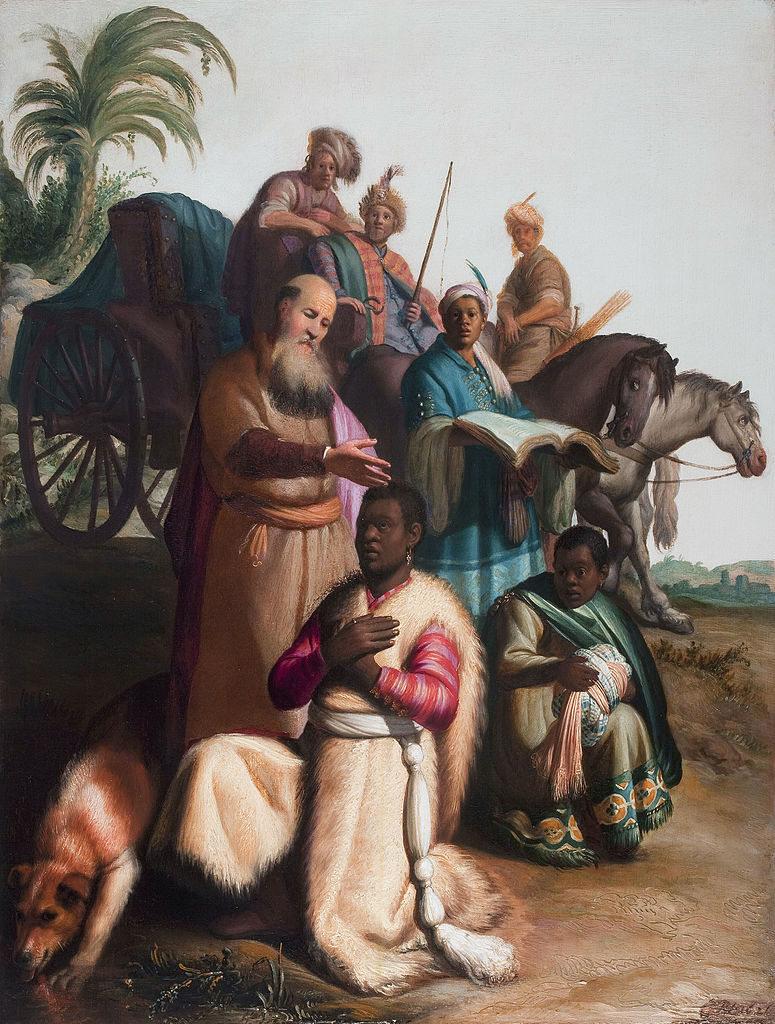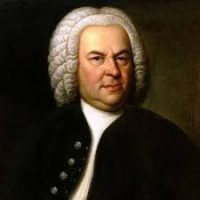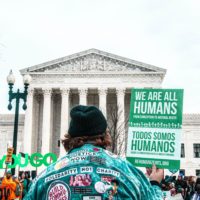Today I would like to invite you to join me on a road through the wilderness. A road that leads from Jerusalem to Gaza, to be exact. It is around the year 35 AD.
On this road through the wilderness, we meet Philip. He’s been trudging along this road for a couple of days, coming all the way from Samaria in the north, some 60, 70, maybe 80 miles away. He’s on a mission from God.
I wonder how Philip feels as he is walking, wondering what God might be up to. Philip is one of the 7 chosen from among the Greek-speaking settlements in the area and elected to be a deacon in the young Christian community in Jerusalem – because there had been complaints that those who were local, the Judeans, received preferential treatment over the Greek-speakers. We get the idea that there were tensions in the young Christian community in Jerusalem even back then. But this community doesn’t only have to deal with internal issues. Soon it encounters persecution. Stephen is the first martyr to die for his faith, stoned to death. Alarmed, many of the followers of Christ flee Jerusalem. Philip makes it to Samaria. Enemy territory, in effect. The Jewish people and the Samaritans, though they believe in the same God and have some holy scriptures in common, view each other with contempt and suspicion.
Philip doesn’t only hide away in Samaria, but proclaims the good news of Jesus Christ and a new life offered to God’s children. Philip effectively starts the first mission outside of Jerusalem, converting people, baptizing them. That’s huge! So why don’t we name Philip in the same breath as Peter and Paul, who are considered the pillars of the early Christian community?
It most likely has something to do with the internal issues in the young Christian community, with power plays and the establishment of a hierarchy. As the venerable apostles in Jerusalem hear about the success of Philip in Samaria, Peter and John themselves travel there to check out the situation. Though they acknowledge the fact that many were baptized, they determine that Philip’s baptism wasn’t good enough – that the baptized have not really received the Holy Spirit. (I wonder how they came to that conclusion. How do you measure the Holy Spirit?)
Anyway, Peter and John ‘fix’ the situation by the laying on of hands and praying over the baptized, who consequently properly receive the Holy Spirit. Which sounds innocent enough. But by doing so, they discredit Philip and his work in the community he established. And right after this unpleasant incident, Philip hits the road through the wilderness.
I wonder how Philip feels as he is walking. If it was me, I’d be fuming – who do these poohbahs in Jerusalem think they are?
I already mentioned that Philip in not on the road on his own accord, but that he is on a mission from God. As Philip possibly is sulking in Samaria, an angel of God tells him, ‘Get up and go toward the south to the road that goes down from Jerusalem to Gaza.’ Maybe even God is not quite happy with the way things went down in Samaria. God shows Philip that he believes in him and his missionary talents.
So Philip is walking, not knowing what God has in store for him.
And then he sees the strangest thing out there in the wilderness: a fancy chariot, which is a rather exotic sight in this setting. And in this chariot a figure you don’t see every day in these parts: an Ethiopian eunuch, a court official, maybe of the queen of Cush herself, dressed in fanciful garb, his skin tone a few shades darker than that of the local people. As Philip is staring at this appearance, God’s Spirit tells him to approach the man.
Now let’s take a step away from this scene and look at the bigger picture. Bible scholars through the centuries have scratched their heads over this strange encounter. What is this eunuch from a land far, far away doing in the story of the young Christian community?
We hear that he ‘had come to Jerusalem to worship’. Was he Jewish? Was he what is called a ‘proselyte’, a convert, a newcomer to the faith of Israel, and as such, de facto, a second class Jew, on par with women? Was he just curious about the Jewish faith and wanted to find out more about it at the source, in Jerusalem?
And what about that eunuch thing? Was the term ‘eunuch’ generally used for court officials in certain societies, as some scholars argue (among them Martin Luther, who doesn’t even mention the word ‘eunuch’ in his German translation of the Bible, but just talks about the ‘äthiopische Kämmerer’, which translates to ‘Ethiopian chamberlain’)? Or was he a castrate – and, by the way, that was a common practice in certain cultures back in the day. Many courtiers were castrated to keep them from having offspring, a family, so that they may be entirely devoted to their master or mistress – and to the office they held.
A eunuch may have held a position of power of privilege – but it often came at the price of emasculation and humiliation – and the loss of dignity and honor among his peers.
Many modern scholars are of the opinion that the eunuch in our Bible lesson for today was, indeed, a castrate; just because Luke uses the description ‘eunuch’ repeatedly, emphasizing this title or condition; and he used a separate word for ‘court official’, so it seems he makes a distinction between the office and the man’s physical condition. As a castrate – a physically damaged, emasculated man – the eunuch would not have been admitted to worship in the temple – not even in its outer courts. He would have been rejected; a seeker who would have never been admitted to be a part of the people of God.
But now let’s get back to the road from Jerusalem to Gaza. Philip runs up to the chariot, just as the Spirit tells him to do. And he does so with admirable openness and curiosity. As he already proved in Samaria, Philip, doesn’t seem to care about religion or skin color or the reputation of this man, who is totally out of place, but just sees God’s child in him – a human being in need of hearing some good news.
The two men start talking about the scripture passage from the prophet Isaiah the eunuch is reading. And that’s a heavy one! “Like a sheep he was led to the slaughter, and like a lamb silent before its shearer, so he does not open his mouth. In his humiliation justice was denied him.”
And now I am taking a huge step from the year 35 to our present times. I have to say in the light of recent events, this sentence hits me in a special way: ‘In his humiliation justice was denied him.’ Immediately I have to think of George Floyd, humiliated, killed slowly and callously. Justice was denied him, as it has been
denied many minorities in this country. And that isn’t changed by the fact that Derek Chauvin was convicted on charges of murder and manslaughter.
Now Philip explains to the eunuch that these words apply to Jesus Christ, who was humiliated by the powers of this world; whose dignity was taken away as he was tortured callously and crucified, to die the painful death of slow suffocation on the cross.
Philip preaches a God who identifies with our human experiences, even the worst ones. He preaches an approachable God, a God who approaches us, a God who stands in absolute solidarity with us – and especially those, who are humiliated, who are dehumanized, whose dignity is taken away.
The eunuch is touched in a special way. There is a God he can relate to. There is a God who wants to relate with him, someone shunned by society. There is this God (who calls him to be a branch on the vine of Christ), who calls him into community – a colorful and diverse and rich community, which is not perfect, but in which all are equal in the eyes of God and no one is rejected. He who was seeking knows that he has been found.
The eunuch is sold on this gospel. And so he asks Philip to baptize him, right there and then, in some waterhole in the wilderness. Philip, maybe in defiance to those stuck-up apostles in Jerusalem, does so without hesitation. And this baptism apparently is ‘good enough’. The newly baptized goes on his way rejoicing. Rejoicing!
Things have changed for him dramatically. He, who most likely has experienced rejection most of his life, has been embraced by the love and grace of God. He now belongs.
Later legend will identify the Ethiopian eunuch as Simeon Niger, or ‘the Black’, also called Bachos, who becomes the first missionary to Africa. I’d say he received the Holy Spirit!
And now let’s take a giant step from the wilderness road from Jerusalem to Gaza in the year 35 to the various ways through the wilderness we walk today. And what a wilderness that is: COVID, isolation, racism, rampant gun violence, economic fallout for the lower classes, political polarization, the ongoing exploitation and destruction of God’s creation – these are just some of the things that come to my mind. Things that make me cry out, ‘Kyrie eleison’, ‘Lord, have mercy’.
How can we shout our ‘alleluias’, as we now do so often during the Easter season? How can we be on our way, rejoicing, with all the forces of death and its minions raging around us – forces that seek to divide and conquer instead of unite and strengthen?
Of course we could just ignore all the bad stuff and create our own little Pollyanna world that affords us with a pretty safe and comfortable bubble in which we can shout our alleluias without a care in the world. But this is not what Christ calls us to. Christ calls us to follow him – and we all know exactly which road Christ chose. The long and windy road to those who are ill, lonely, poor, rejected, lost, humiliated, to those hungry and thirsty for justice. The way to the cross.
The world did not miraculously change once Christ rose from the dead. And yet, followers throughout the ages have shouted their alleluias and rejoiced – often in defiance against all the powers of death. Friends, there is reason to rejoice: because life in all its awesome beauty, God’s precious gift, always finds a way. Because goodness and mercy cannot be entirely eradicated, but are found everywhere. Because we are part of the colorful and diverse and beautiful family of God – a family where we uphold and support each other. Because we know we are God’s children, and that God is on our side, and that nothing can ever change this. Because we trust that, some day, God will wipe away any tear, and pain and mourning and death will be no more. Because we know that God has the power to turn the world around. And because we are called to participate in this holy work.
Once we become so bitter or defeated that we can’t rejoice anymore, death and the devil have won. So let’s be defiant in our joy.
We may be on a tough road through the wilderness, but we can be on our way, rejoicing. For: alleluia! Christ is risen! He is risen indeed! Alleluia!
This post is also available in: German




